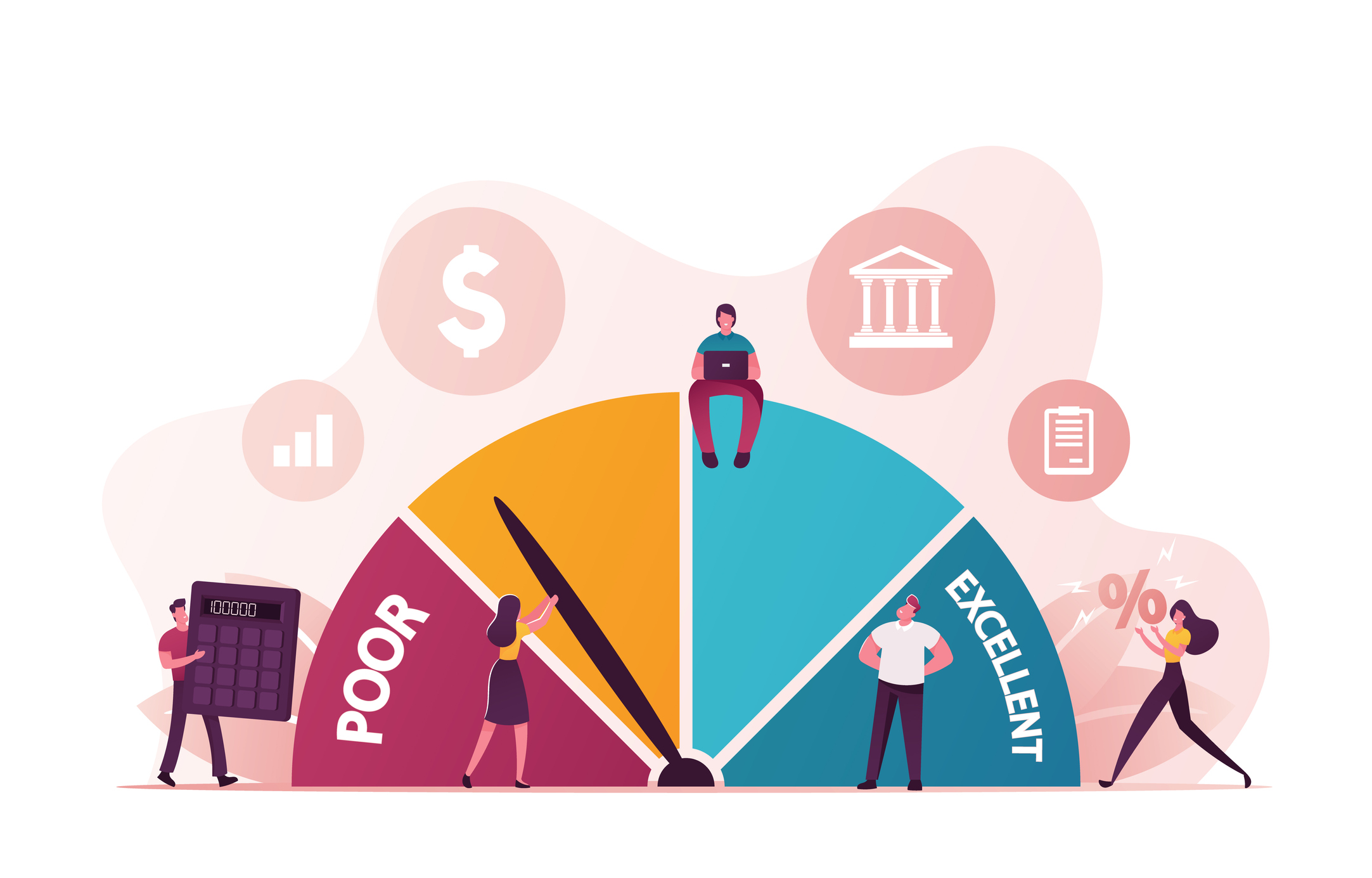When lenders consider loaning money to a business, or suppliers agree to a trade credit agreement, there’s one key consideration on their minds – risk! Risk that the company may be too slow making the repayments, risk that they may not have the liquid cash to pay the full amount and risk that the business may not last long enough to actually settle its debt.
The upshot of this is that it can be very difficult for startups to access the finance they need. The younger a business is, the bigger risk it presents and the lower its credit score is likely to be. But the good news is that there ARE ways to help clients build solid financial foundations, improve their credit scores and successfully survive the first five years of trading.
Paul Surtees, Capitalise co-founder and CEO, explains the link between business age and securing a stable credit score, and how credit agencies assess the potential for failure.
The increased risk of lending to startups and new businesses
No bank or lender wants to enter into a loan or credit agreement unless it can be sure of getting its money back. That’s financial services 101: don’t lend to a business that isn’t creditworthy, i.e. one with a high level of risk in it’s financial model and a low credit score as a result.
The irony of this situation is that young businesses which desperately need money find it more difficult to access funding, and may well fail due to a lack of working capital. Conversely, older businesses with well-established finances find it far easier to access funding, and can therefore sure-up their foundations, continue to grow and secure the longevity of the business.
So, why is this? And how do credit agencies measure a business’s level of risk and underlying creditworthiness? The answer lies in the ‘Four Cs of Credit' – the basic pillars that will be reviewed when assessing whether to offer a finance deal, or refuse one.
The Four Cs of Credit work like this:
-
Capital – in this context, your client’s capital refers to the assets the company has available to create products and/or services, sell them and generate the cash needed to pay off a loan. Startups and new businesses will generally have fewer assets and therefore less potential ability to generate cash and repay loans.
-
Collateral – collateral is the cash the business will use to secure the loan. In the event of the business defaulting on the loan, or failing completely, this is the cash the lender can recoup to pay off some, or all, of the loan. New business owners are likely to have limited collateral to offer, aside from offering personal assets (like property) as collateral.
-
Capacity – the client’s capacity is based on their ability to repay the loan. This will be gauged on the company’s proven track record of raising revenues, generating profit and being in a positive cash-flow position. The newer the business, the shorter its financial track record will be, making it more difficult to gauge their capacity and assess whether the company has the financial wherewithal to make the required repayments.
-
Character – the client’s character is measured against their long-term financial history and any red flags that may affect the company’s creditworthiness. In other words, does this business have a good credit history on which to base a character judgement? Do they pay on time? Does the company have mounting debts? Is there any history of insolvency etc.? A good credit rating is critical here but, as we’ve mentioned, new businesses are likely to receive a low credit score, due to their short financial history and largely unknown financial character.
Assessing potential business failure – and the impact on credit scores
The challenges of accessing finance as a startup or new business are both real and pressing for clients that fall into these categories.
Clients at this early stage of the business cycle have fewer capital assets, a reduced capacity to offer collateral, less capacity to make repayments and a largely unknown financial character that’s hard to judge. So, finding a lender willing to offer funding can be an uphill struggle.
When funding isn’t readily available at the most critical early stages of a company’s development, this can have a potentially fatal impact for the business. The top reason generally given for business failure is ‘poor cash-flow management’, closely followed by ‘losing control of the finances’. Without a robust funding strategy in place, when things do begin to get tough there’s no external finance available to dig struggling businesses out of their cash-flow hole.
It’s this link between business age, lack of access to finance and potential business failure that results in such poor credit scores for early-stage startups.
You can see how this pans out over time in the chart below:
Data and chart provided by experian.co.uk
What are the main points we can pull out of this chart when it comes to business life expectancy?
Key insights include:
-
Businesses of less than 1 year start with very low credit scores, poor creditworthiness and, subsequently, limited access to external funding.
-
Those businesses that survive the first year will see a steady rise in their credit score.
-
This credit score will then plateau and stabilise up to the five-year mark.
-
Businesses that survive the first five years are far more likely to stabilise and build a lasting presence as a company. This will then result in a pronounced increase in their credit score, and better access to external finance.
Strengthening your capital position and credit score over time
As an accountant and business adviser, a key part of your mission is to offer high-value advice that helps clients build long-lasting, successful businesses. You work closely with business owners and their executive teams to make sure their finances are in order and that the best possible decisions are made at each stage of the business journey.
So, how can Capitalise help you do this? And how does our access to specialist and alternative lenders make it easier for new business clients to locate the funding they need?
As a Capital Advisory platform, we offer your firm a Marketplace, with an ever-growing range of different finance providers and capital products, our Monitor tool, to bring you client intelligence and financial insights, and Learn, our online education resource. When combined together, this gives your firm the power to advise, support and enhance your clients’ financial future.
We’ll help you:
-
Improve clients’ credit score – we connect you with our credit improvement specialists to help clients review, update and repair their credit rating. By boosting clients’ credit scores, you can quickly improve their overall creditworthiness and their short, medium and long-term access to external funding and credit facilities.
-
Reduce clients’ aged debtors – where clients have long-standing problems with bad debt, we’ll bring in our debt recovery partners to help recoup these funds. Resolving bad debt not only improves clients’ cash flow and capital position, it also reduces the chance of their asset becoming weaker on the client’s balance sheet (with a write-off) and improves the credit agencies’ assessment of their financial character.
-
Enhance clients’ capital position – with an improved credit score and a stronger internal working capital ratio in the business, you open up enhanced access to external funding for clients. Clients can make use of invoice finance, asset finance, secured and unsecured business loans or working capital facilities – all of which serve to increase the cash, assets and capital in clients’ businesses, making them more creditworthy as a result.
-
Increase clients’ resilience – by strengthening clients’ capital position, improving their credit scores and opening up a world of different financial services and facilities, you help them create stronger and more stable enterprises. And it’s these strong, viable businesses that will have an increased chance of surviving beyond the first five years of trading, to become an established, profitable and productive business.
We have a network of 100+ different lenders and two specialist small business funding providers to connect you with, making it easier than ever to find meaningful funding for clients. When it comes to helping SMEs build long-lasting success, our motto at Capitalise is ‘Capitalise your life duration, raise it, recover it and protect it’.
Get in touch for a chat about credit improvement, debt recovery and routes to funding.
 United Kingdom
United Kingdom  South Africa
South Africa 

